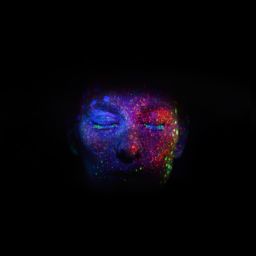I’ve now completed three years of core psychiatry training. When I applied to medical school I knew I wanted to become a psychiatrist. When I got into medical school I used my spare time to learn more about psychiatry, using my ‘student-selected components’ and elective to immerse myself in mental health. When I became a foundation doctor I specifically asked for a psychiatry rotation and used that four-month opportunity to pick the brains of my consultant and relish in the fact that this would be my day-to-day job in the not-too-distant future. I used my taster weeks to explore the more niche areas of the speciality and travel the country, seeing how mental health could be treated so differently in the same healthcare system. During the last eight years I have attended mental health conferences, entered psychiatry essay competitions, read books on mental health, followed debates on policy and law on social media and overall fully thrown myself into the world of psychiatry.
Perhaps it is therefore not surprising that core psychiatry training was not what I expected it to be. Perhaps I had an idealistic view of what mental health care actually involved. But then I would have brief glimpses of excellent teams providing fantastic clinical care and realise that what I expected was not beyond the ordinary.
The last three years have left me drained, cynical and hopeless. I am now left with the question: what is the point of Psychiatry? Am I ‘helping’ people or actually harming them? Here are some of the things that I have experienced in my last three years of core psychiatry training that have made me question whether the career I have idealised for so long is in fact one that is slowly degenerating before my eyes.
The model.
Mental health care in the UK is built on the biomedical and behavioural models which, frankly, I do not agree with. These models not only reduce individuals to chemicals, circuits and feedback loops, they also take away their humanity. The behavioural model conceives people as mere organisms that will jump if you give them a reward and stop their ‘attention-seeking’ behaviour if you punish them.
These models are prevalent when it comes to patients who we, as clinicians, feel we cannot push away with a pill and elicit anxieties in ourselves because we cannot ‘cure’ them, making us feel helpless as clinicians. So rather than acknowledging that sometimes we don’t know the answer and sometimes human suffering goes beyond the categories of a diagnostic manual, we use these models to push away all of these uncomfortable feelings and place the blame and discomfort on to the patient – it is their fault that they cannot change, it is their fault that they are suffering, it is up to them if they do not wish to ‘engage’ and do not wish to get better. It is not our problem.
Gate-keeping.
Triage and gate-keeping are a part of medicine. What is frustrating is when this gate-keeping is built not on evidence but stereotypes and prejudices about certain ‘groups’ of patients not deserving of psychiatric care.
The mental health system is built upon the tenuous concept of risk; specifically, risk to others. Anyone else is simply deemed not to require mental health input. Personal distress is not sufficient. Self-harm and risk of suicide can be sufficient the first few times you present to services; if it becomes a pattern then we just push you away and tell you to stop seeking attention and care with your behaviour. One of the hardest things I experienced was working with individuals who were trying so hard, who had experienced so much trauma and disadvantage in their lives and yet were still determined to seek help, being turned away by services because they were not risky enough. This obsession with risk leads to a binary world-view; if you are not risky enough, you’re not unwell enough.
Reductive practice.
The current mental health system reduces people to a diagnosis and medication; which pill should I give? It reduces clinical practice to an algorithm; antidepressant or antipsychotic? People are treated not as, well, people, but as intrusions on your time. The focus is not on patient wellbeing but length of stay, number of beds, patient caseloads etc. I was rewarded each time I discharged a patient or suggested someone could leave the ward. Mental health care turned into a conveyor belt and anyone who disagreed with the team’s decision to discharge them was clearly just attention seeking and needed to be taken off the caseload before they did anything even more disruptive like, heaven forbid, ask for more help. Discharge is the aim, the whole purpose of the system.
The biomedical model.
The biomedical model leads to a further fragmentation of services; there are only certain diagnoses that are deserving of care and thus allowed to access mental health services; if you’re psychotic, great, we’ll take you. We’ve got lots of antipsychotics to play with because we all know you have a ‘real’ illness caused by an ‘imbalance’ of chemicals. If you’re not psychotic, well, tough. Change the way you think and just dig yourself out of your current situation, you’re in control, personal responsibility and all that.
This leads to a sense of fatalism and nihilism about patients, particularly those who are not psychotic. There is a sense, driven by the biomedical model, that if you do not get better, then it is your fault; you are noncompliant, not engaging, treatment resistant, and thus the onus is on you to change. There is this bizarre emphasis on personal responsibility which is very important but has now been abused to the point that people are refused care because they ‘need to take responsibility,’ turning into an excuse to gate-keep resources so that only those deemed worthy by the biomedical model can receive them.The biomedical model leads to a further fragmentation of services; there are only certain diagnoses that are deserving of care and thus allowed to access mental health services; if you’re psychotic, great, we’ll take you. We’ve got lots of antipsychotics to play with because we all know you have a ‘real’ illness caused by an ‘imbalance’ of chemicals. If you’re not psychotic, well, tough. Change the way you think and just dig yourself out of your current situation, you’re in control, personal responsibility and all that.
This leads to a sense of fatalism and nihilism about patients, particularly those who are not psychotic. There is a sense, driven by the biomedical model, that if you do not get better, then it is your fault; you are noncompliant, not engaging, treatment resistant, and thus the onus is on you to change. There is this bizarre emphasis on personal responsibility which is very important but has now been abused to the point that people are refused care because they ‘need to take responsibility,’ turning into an excuse to gate-keep resources so that only those deemed worthy by the biomedical model can receive them.
Discrimination.
This leads to my final point; the discrimination of young women who self harm and the use of term EUPD (‘emotionally unstable personality disorder’) to justify lack of care and, quite frankly, neglect. All of the above points – of the biomedical model, of the psychosis/not-psychosis divide, the emphasis on blame and responsibility, leads to a certain group of individuals being pushed out of services and stigmatised as being attention-seeking and not really unwell because they just don’t fit the medical model and there is no quick-fix. They don’t fit into our idea of being ‘mentally ill’ and therefore they are deemed not to be ill or require treatment.
I want to end by saying that I do not believe that this is a product of malicious intent. I genuinely believe that many people, like myself, went into mental health with an idealistic desire to help people. But what we were met with was a system that commodifies human suffering and reduces peoples’ lives into a manualised tickbox that puts all of human experience into one box. And if you try to challenge the system, if you try to offer more time, more help, more understanding, more care, then you will be left burnt out by a system that just does not care.














